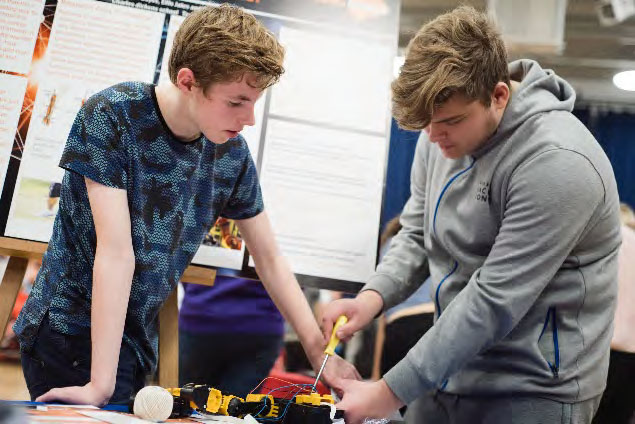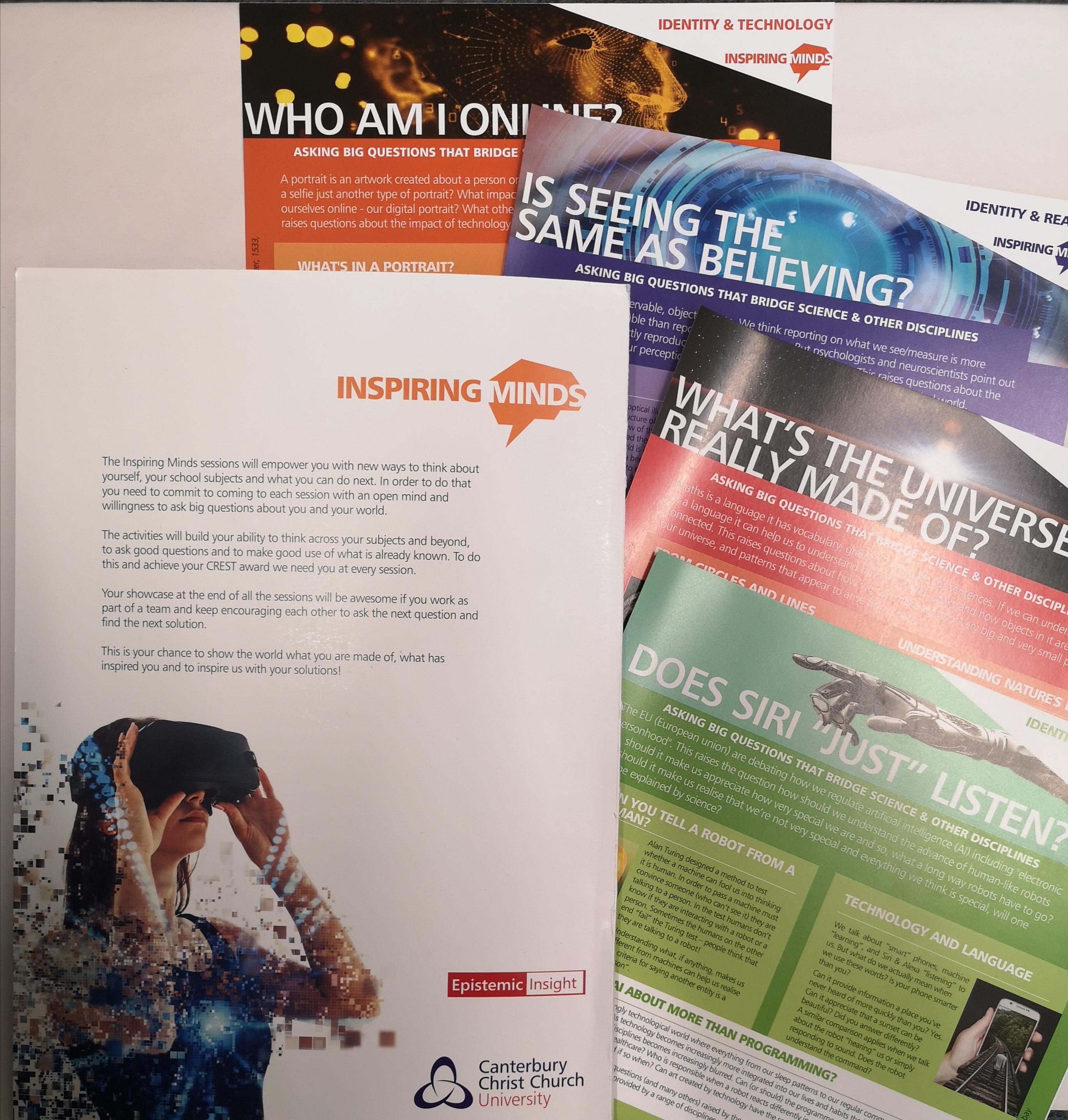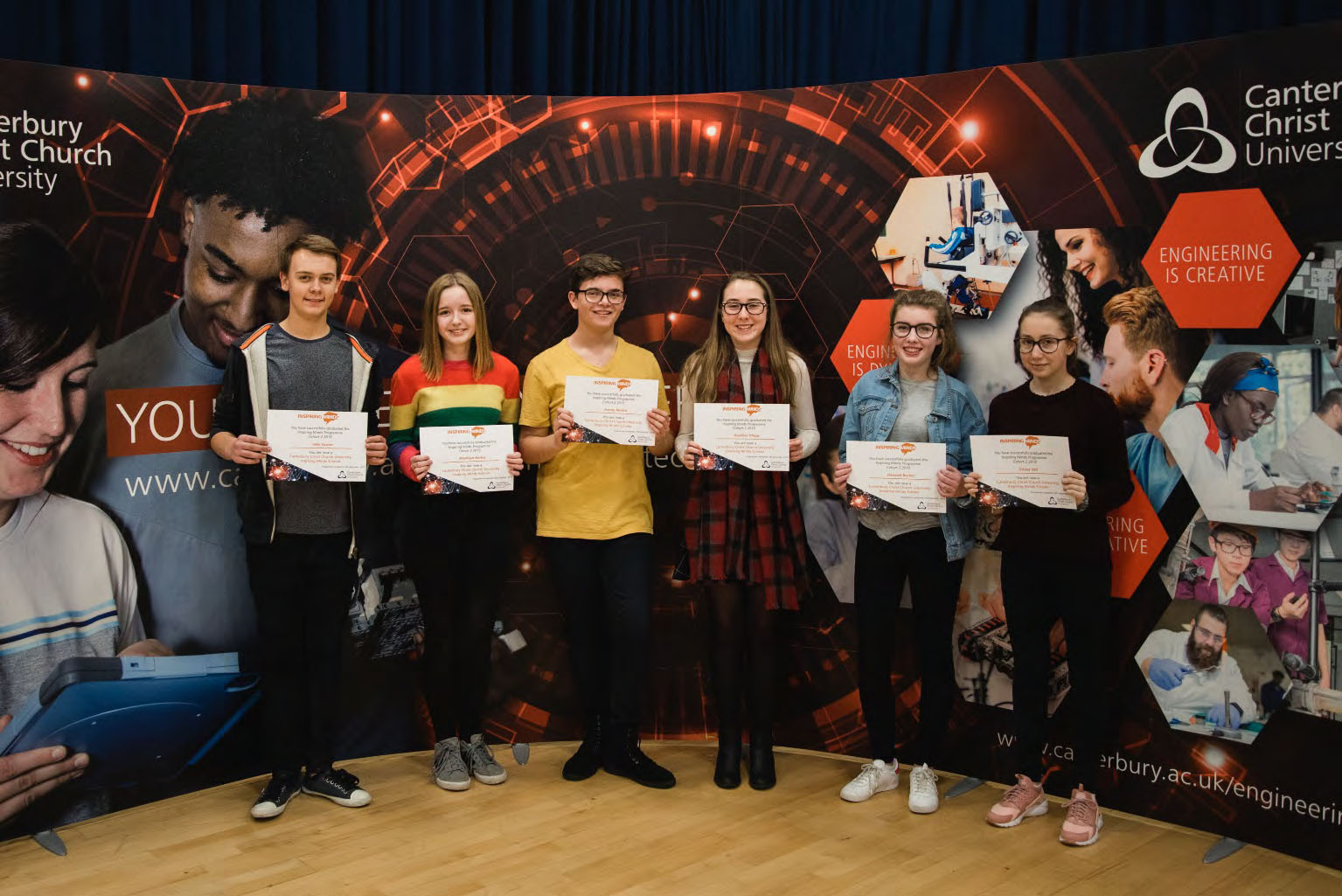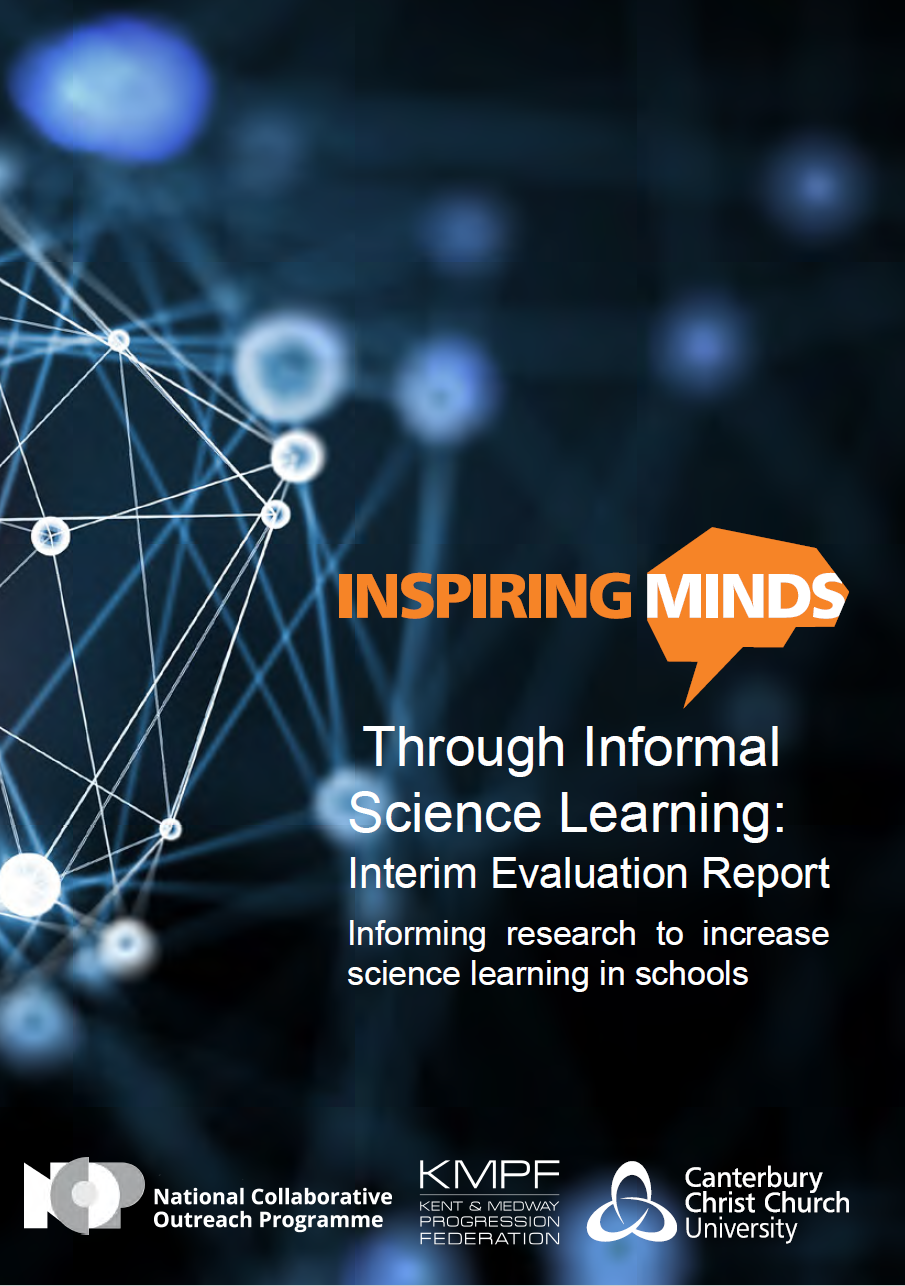
Project Overview
Inspiring Minds is a HEFCE funded project for the National Collaborative Outreach Programme (NCOP). This Inspiring Minds programme aims to increase the number of young people from disadvantaged backgrounds in higher education by 2020. NCOP and its regional consortium in Kent & Medway (KaMCOP) aims to support the most disadvantaged young people in England to progress into higher education. The LASAR Centre are working with CCCU School and College Engagement Team and KaMCOP to design and deliver the programme. Inspiring Minds: Informal Science Learning (ISL) piloted in January 2018. In July 2018 Inspiring Minds: residential was launched and in September 2018 Inspiring Mindset and Inspiring Minds: Roadshow launched taking the programme off campus and out in to schools. 2019-20 will see 3 ISL cohorts starting in September, January and April. To find out if your students are able to be involved please email the KaMCOP team.
ISL Rationale & Curriculum
The Inspiring Minds’ curriculum is designed to not only offer and evaluate sustained outreach engagement to improve HE uptake, but also to implement and trial ISL that develops students’ understanding of the power and limitations of scientific knowledge as part of a wider research project. The power and limitations of science (sometimes called ‘epistemic humility’) is both a curriculum objective in science KS4 and a central aspect to the development of epistemic insight.
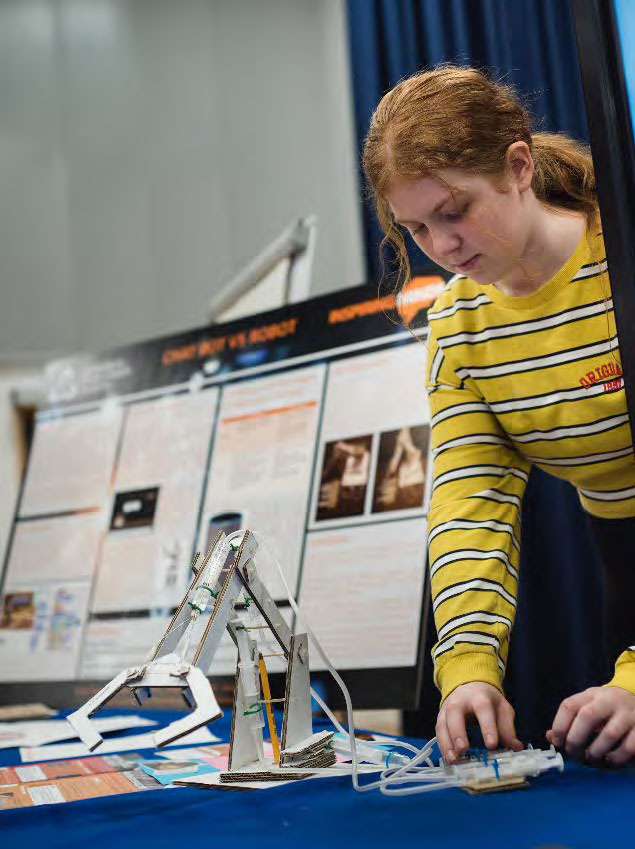
Further research by LASAR has highlighted the current compartmentalisation of the curriculum alongside other pressures and barriers within the UK educational system systematically dampens student’s interest in Big Questions. When this is understood in connection with research on the importance of science capital (Wellcome, 2017) students from low participation backgrounds are far less likely to have opportunity to develop their understanding of the strengths and limitations of science in real-world contexts and multidisciplinary arenas. Furthermore, those low-participation students are less likely to develop their epistemic insight and associated habits of mind that are required for innovative approaches to teaching STEM within HE, such as the CDIO (Conceive, Design, Implement, Operate) approach to engineering education
It has been argued (Craven, 2002; Schwartz et al. 2004; Seeker 2005) that teaching about the nature of science needs to be both explicit, and whilst this is part of the science national curriculum, it is currently not assessed and therefore remains under resourced within school science teaching. The underpinning concept in developing an ISL curriculum that examines big philosophical questions that bridge science and other disciplines is not to simply provide students with additional scientific content but to also engage them in the discussion through the support and scaffolding of a research-informed ISL curriculum. The divide between scholar-led and student-led activities enables students’ engagement with the nature of science to explicit and reflective so that there is opportunity to discussion the nature, power and limitations of the sciences.
In developing outreach activities that also fulfil an ISL agenda a further question is raised as to whether the activities should be focusing on knowledge application or knowledge generation. Knowledge application refers to the students being able to use knowledge they already have, whereas knowledge generation refers to students generating new knowledge (with the newness being relative to the student). In an informal setting with students from multiple schools and ability range in each session the curriculum cannot be based on assumed prior scientific knowledge this can lead to a focus on knowledge generation over application. However, with a key aim of the activities being to foster students’ confidence in their abilities as scholars this hashe potential risk of leaving students feeling just as disenfranchised and unable to engage as they do in school.
